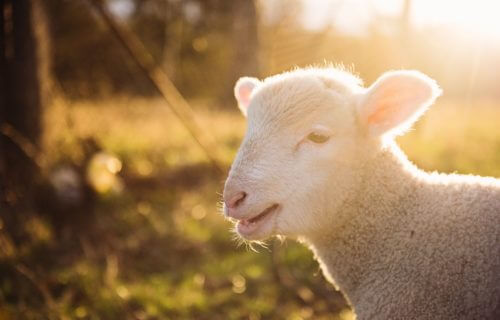SINGAPORE — For many people around the globe, dogs are pets and cows are food. While both species can be just as gentle, humans seem to categorize which animals they love, which ones they eat, and which ones they think are worth fighting for. Now, a new study is revealing why and how people make these moral judgements when it comes to which animals they kill or save.
Researchers in Singapore examined the social perceptions surrounding various nonhuman animals, including species people kill for food. Study authors add many of these animals have been portrayed as less sentient, despite studies finding that many do indeed feel pain.
The team looked at how participants rated 16 animals in terms of warmth and competence. These species included sharks, alligators, pigs, dogs, octopuses, rabbits, cows, and orangutans. The results show that people hold very different perceptions about these creatures — and many of these views depend on the various ideologies humans follow.
After splitting the results into four main categories — love, save, indifferent, and dislike — the team from James Cook University found that vegetarians and animal rights activists hold more “absolutist” beliefs in comparison to their peers. However, when the team factored that into the scale of social perceptions, it had little impact on what people thought of nonhuman animals overall.
Humans take ‘mental shortcuts’ to justify animal treatment
Instead, the team suggests that many people assign different values to animals in order to justify how they treat those they either dislike or consume as food.
“Participants rated the 16 nonhuman animal species significantly differently on dimensions of warmth and competence,” says lead author Dr. Paul Patinadan from the National Healthcare Group, Singapore in a media release.
“People’s ethical ideologies about nonhuman animals do not seem to affect the social permutations they grant to the different species. The current findings suggest that general human feelings about nonhuman animals might be sourced from mental shortcuts of adaptive social value judgements and permutations,” Dr. Patinadan continues.
“Understanding the place of our own moral judgments amongst nonhuman animals might help to finally define the nebulous nature of human interaction with the beings that share our world with us.”
The team notes that their research only examined how people in Singapore view animals, explaining that their culture likely differs significantly from people in Western societies. Future research will have to examine those idiosyncrasies and relationships before making any broader judgements on how people view animals.
The findings are published in the journal Human-Animal Interactions.


I was really hoping ‘Study Finds’ would be Walter-Cronkitis: Just report the study and results without editorial comment. Especially snide remarks. Appears this is not the case.
Maybe interjecting your spin is now ingrained into journalists / reporters. Or maybe it gets more reviews and comments. Either way I can make up my own mind based upon the facts, Geoff – I would challenge you to report without interjecting bias and opinions. Or maybe that’s too boring. Not sure.